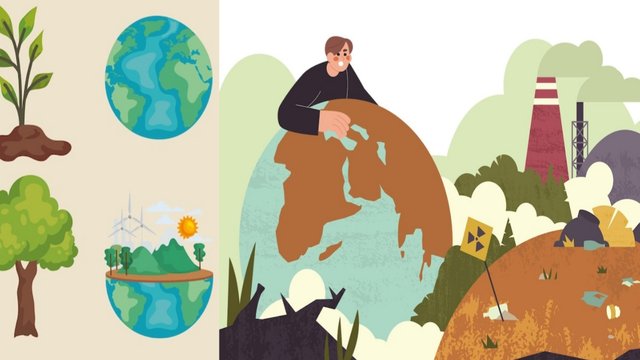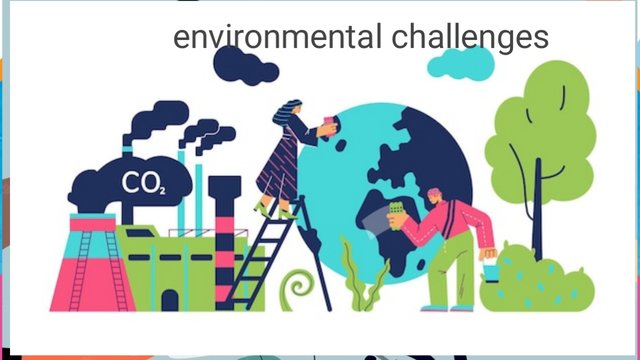The world is confronting a scope of natural difficulties, from environmental change and biodiversity misfortune to contamination and deforestation. These difficulties are restricted to explicit locales or nations as well as influence the whole planet. The results of these natural issues are as of now apparent through dissolving icy masses, rising ocean levels, outrageous climate occasions, and the elimination of species. In this article, we will examine the ecological difficulties that we face today and their possible effects from here on out.
Environmental Change:

Environmental change is one of the most squeezing natural difficulties within recent memory. It is brought about by the aggregation of ozone harming substances, fundamentally carbon dioxide, in the climate. The consuming of petroleum derivatives like coal, oil, and gas is the primary wellspring of these discharges. Environmental change is prompting increasing temperatures, more continuous and serious climate occasions, and ocean level ascent. These effects are now influencing weak networks, biological systems, and economies all over the planet.
Effects of Environmental Change:
Environmental change can possibly cause destroying influences on human social orders and regular biological systems. The impacts of environmental change should be visible in outrageous climate occasions, ocean level ascent, and changes in biological systems. The most weak networks are probably going to be the most impacted by environmental change, remembering those for low-lying waterfront regions and non-industrial nations. There is likewise the potential for environmental change to prompt food and water deficiencies, uprooting of populaces, and expanded struggle.
Biodiversity Misfortune:
Biodiversity misfortune is another major natural test confronting this present reality. Human exercises like deforestation, overfishing, and contamination are causing a decrease in animal types variety and environment wellbeing. The deficiency of biodiversity has adverse results for human prosperity, remembering influences for food security, wellbeing, and the economy.
Effects of Biodiversity Misfortune:
The deficiency of biodiversity affects biological systems and human social orders. The decay of pollinators, for instance, can prompt decreased crop yields, while the deficiency of marine species can prompt food deficiencies and monetary misfortunes. Biodiversity misfortune additionally influences the working of biological systems, making them less strong to other ecological difficulties, for example, environmental change.
Contamination:
Contamination is a significant natural test that influences air, water, and soil quality. Human exercises like modern creation, transportation, and farming are critical wellsprings of contamination. Contamination adversely affects human wellbeing, environments, and the economy.
Effects of Contamination:
Contamination adversely affects human wellbeing, including respiratory issues, disease, and neurological problems. Contaminated water sources can prompt the spread of illnesses like cholera, while dirtied air can fuel asthma and other respiratory circumstances. Contamination can likewise hurt biological systems, including causing the demise of marine species and lessening the nature of soil.
Deforestation:

Deforestation is the extremely durable obliteration of timberlands and forests. Human exercises like horticulture, logging, and urbanization are the principal drivers of deforestation. Deforestation adversely affects biodiversity, environment, and human prosperity.
Effects of Deforestation:
Deforestation adversely affects environments and human social orders. The deficiency of woods can prompt soil disintegration, desertification, and decreased water quality. Deforestation likewise adds to environmental change by delivering carbon dioxide into the climate and decreasing the capacity of backwoods to retain carbon. Furthermore, deforestation can prompt the uprooting of native people groups and other nearby networks who rely upon timberlands for their jobs.
Overfishing:
Overfishing is the unreasonable fishing of fish stocks. Human exercises, for example, modern fishing and unlawful fishing are the primary drivers of overfishing. Overfishing adversely affects biodiversity, food security, and the economy.